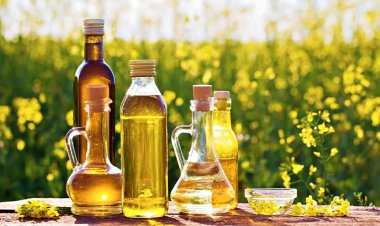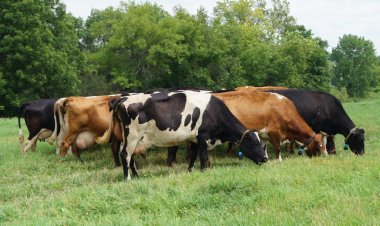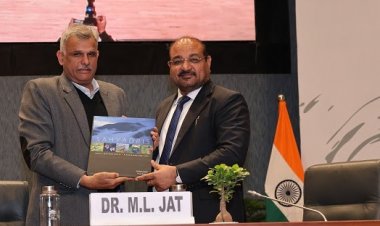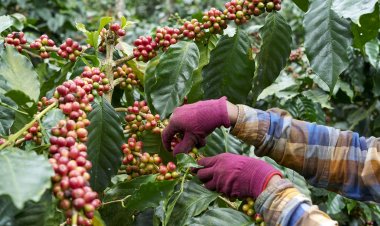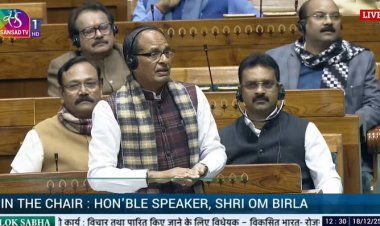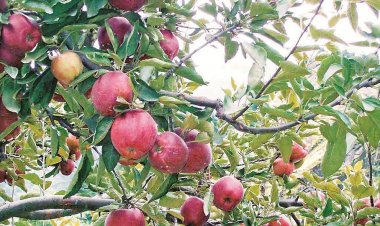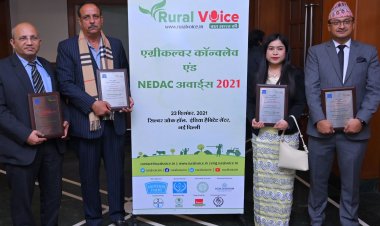More seed varieties may be added to global 'food basket'
The International Treaty on Plant Genetic Resources for Food and Agriculture’s Governing Body has decided to consider adding more seed varieties to global “food basket”. The role of seeds in addressing global challenges, such as loss of biodiversity and climate change, and the need for greater variety in the world’s “food basket” of key crops has come into sharp focus amid multiple crises and will be at the core of discussions as the governing body of the treaty safeguarding plant genetic resources meets.
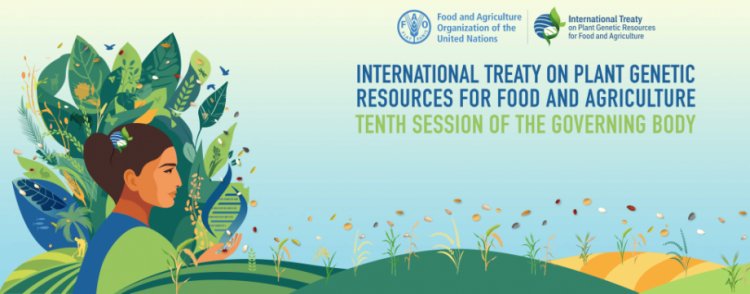
The International Treaty on Plant Genetic Resources for Food and Agriculture’s Governing Body has decided to consider adding more seed varieties to global “food basket”. The role of seeds in addressing global challenges, such as loss of biodiversity and climate change, and the need for greater variety in the world’s “food basket” of key crops has come into sharp focus amid multiple crises and will be at the core of discussions as the governing body of the treaty safeguarding plant genetic resources meets.
“The diversity of plant genetics makes meaningful agricultural research and innovation possible to foster resilience, enhance food security and support the livelihoods of rural communities, including women and youth,” QU Dongyu, Director-General of the Food and Agriculture Organization of the United Nations (FAO), said in opening remarks at the Tenth Session of the Governing Body of the International Treaty on Plant Genetic Resources for Food and Agriculture.
Recognizing vital contributions
This year’s theme – ‘From seeds to Innovative Solutions: Safeguarding our Future’ recognizes the farmers, plant breeders, agricultural researchers, and seedbank curators who work to conserve and improve plant genetic resources around the world, Qu said, according to an FAO release.
Plant genetic resources are crucial to our diets and the Treaty’s role is to ensure these are safeguarded and accessible as part of innovative, sustainable and resilient agrifood systems solutions. The meeting, lasting from 20-24 November and attended by more than 600 delegates from across the world, will discuss how the International Treaty – a binding agreement, with its secretariat based at FAO – can keep up with the changes brought by factors such as the impacts of the climate crisis, which is playing havoc with farmers’ traditional crops across the globe and threatening the planet’s ability to sustainably feed a growing population.
A special event on the first day will bring together key stakeholders for agricultural biodiversity management to discuss linkages and synergies between the Kunming-Montreal Global Biodiversity Framework and the International Treaty. Speakers will discuss innovative ideas for enhancing conservation of plant diversity, promoting sustainable agriculture and joint efforts to achieve a more food-secure and resilient future.
Updated food basket?
The Treaty, adopted in 2001, lists 64 of the key crops that make up our global “food basket”. Informed by a report called The Plants that Feed the World, which is to be presented at a side event, among the issues the meeting will consider is whether this list needs updating to take in a greater number of crops.
Among the trends highlighted in the report are: an increased role for plant-based proteins; countries becoming more interdependent on each other for crop varieties and tastes and fashions changing the demand for crops. “We need to ensure a more abundant variety in the world’s food basket if we are to sustainably meet food and nutrition needs while conserving biodiversity,” the FAO Director-General said.
That will involve empowering smallholder farmers with tools, knowledge and resources and fostering partnerships among public and private actors, academia, and civil society, Qu said.
Conservation and sharing
The Session will cover an array of topics including those relating to the global conservation and sustainable use of agricultural plants and seeds, sharing of benefits arising from their use, the enhancement of its worldwide gene pool, a decentralized Global Information System and farmers’ rights.
A major focus will be how seeds can help address global challenges such as loss of biodiversity and climate change, with their traits enabling crops to withstand or adapt to adverse conditions, including drought. Greater diversity of seeds means greater resilience for agrifood systems, as locally-adapted seed varieties can offer improved nutritional profiles, rich in vitamins and minerals. Participants will deliberate on strategies for conserving these seeds in gene banks and in agricultural fields, and making them available for use by researchers, plant breeders and farmers.
A special exhibition called “The Journey of Seeds” will also be hosted at FAO headquarters, inviting visitors to embark on a journey with the seeds from farmers’ fields to gene banks to farms, and from there to markets and into our kitchens in different places around the world.



 Join the RuralVoice whatsapp group
Join the RuralVoice whatsapp group

















